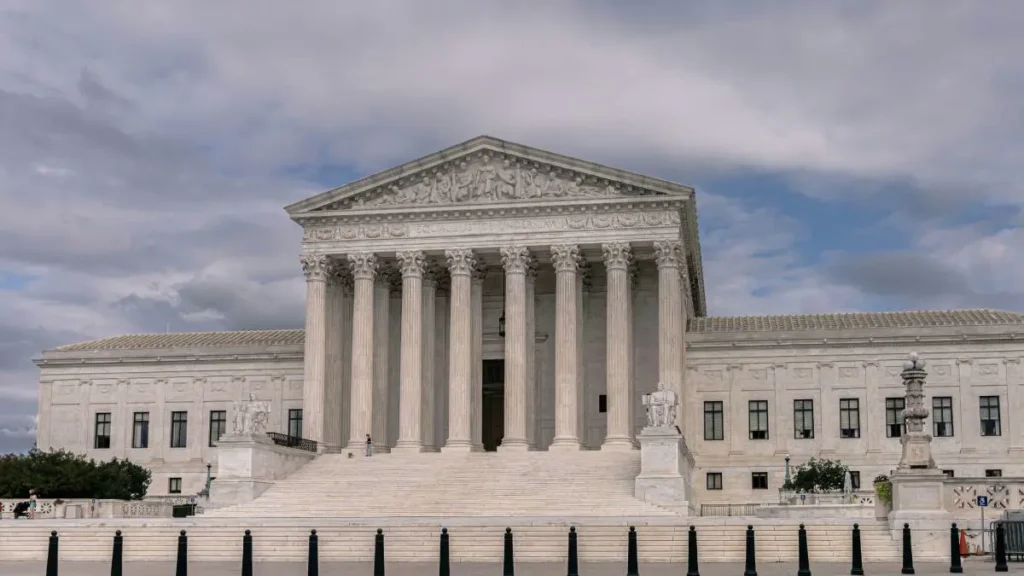US Supreme Court justices seemed hesitant to overturn a hundred years of American tax law in a recent court session.
The highly observed case, Moore vs. United States, centers on a Washington couple, Charles and Kathleen Moore.
They possess a controlling stake in a lucrative foreign company impacted by a tax implemented through the 2017 tax overhaul led by former President Donald Trump.
Justices from both conservative and liberal perspectives expressed worries about the implications of supporting the couple compelled to pay nearly $15,000 in a one-time tax under the 2017 tax law.
The couple had previously sued for a refund, facing an unsuccessful outcome before turning to the high court for an appeal.
Justices were discussing a significant challenge to the tax imposed during the Trump era on profits from overseas.
The debate raised questions about the potential impact on future attempts to introduce a wealth tax. The justices’ reluctance suggested a cautious approach to reshaping longstanding tax laws.
Read also: Time’s Ticking! Reduce Your Tax Bill or Score a Bigger Refund Before the Deadline
Constitutional Challenges of Moore Case and Tax Law Impact
Andrew Grossman, representing petitioners Charles and Kathleen Moore, contended that the US Constitution grants the federal government authority solely to tax income.
The disputed tax pertained to unrealized gains from a company in which the couple had invested. Grossman asserted that such a levy was unconstitutional as “unrealized gains are not income.”
According to Matt Gardner, a senior fellow at the Institute on Taxation and Economic Policy and co-author of the case report, this has the potential to be the most impactful court decision on fiscal policy in the modern era.
The case contests a tax called “deemed repatriation,” introduced through the 2017 Tax Cuts and Jobs Act. Framed as a transition tax, the law mandated a one-time charge on earnings and profits amassed in foreign entities since 1986.
Policy Debates Unravel
Former House Speaker Paul Ryan, a key architect of the Tax Cuts and Jobs Act, stated at a Brookings Institution event in September that the objective was to “finance a conversion from one system to another, and it wasn’t to justify a wealth tax.”
Ryan, not in favor of a wealth tax, asserted that adopting the Moores’ argument to prevent one would necessitate eliminating “a third of the tax code.”
Daniel Bunn, president, and CEO of the Tax Foundation, who has delved into the topic, suggests that the court’s decision in this case could lead to either minor ripples or a significant impact on the tax code.
As noted by Bunn, should the court rule that the Moores face a tax on unrealized income and declare the levy unconstitutional, it can impact future taxation. Probably of pass-through entities like partnerships, limited liability corporations, and S corporations.
Bunn emphasized the importance of monitoring how the rules may affect your business, particularly in a cross-border context.
He highlights the potential for a substantial impact on federal revenue, which could shape future tax policy.
The Tax Foundation estimates that if deemed repatriation were completely invalidated for both corporate and noncorporate taxpayers, it could lead to a reduction of $346 billion in federal revenue over the next decade.
Given that a decision is not anticipated until 2024, predicting the Supreme Court’s ruling on this case is challenging.
Matt Gardner added, “There’s a lot of uncertainty about the scope of this thing.”
Read also: Stocks and Bonds Ease as Traders Pause After the November Rally
